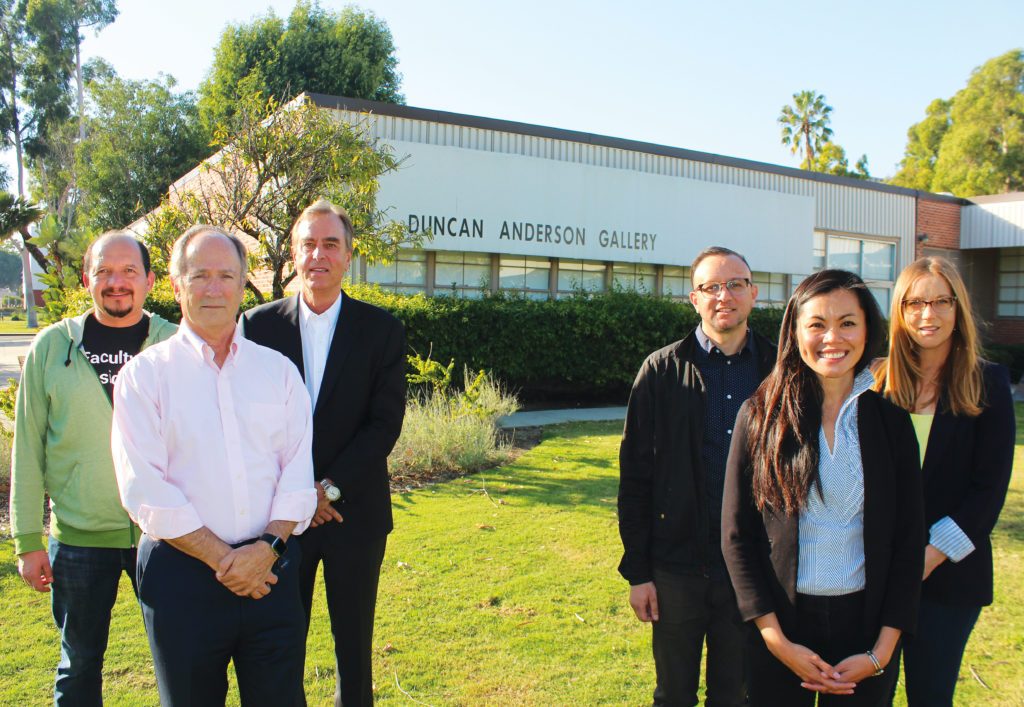If there were only 24 hours to develop a solution to one of the world’s biggest economic issues, could it be done? The participants of the global, 24-hour Climathon faced that challenge head-on on October 25.
The Climathon takes place simultaneously in cities around the world to attract innovators, entrepreneurs, students and professionals to create solutions for global climate challenges, according to Wade Martin, professor of economics and director of the Institute for Innovation and Entrepreneurship (IIE) at California State University, Long Beach (CSULB). The Climathon is inspired by hackathons, collaborative events in which programmers complete certain tasks over a short period of time.

A total of 122 cities hosted a Climathon this year, Martin said, noting that Long Beach is only one of four cities in the United States that participated. The IIE, in partnership with the Long Beach Economic Development Department, has hosted the event for three years. “[The economic development department] believes in the event’s innovative and entrepreneurial approach to addressing climate issues,” Martin said.
The Long Beach Climathon, hosted at the university’s Duncan Anderson Gallery, finds solutions to help meet the objectives of the city’s Climate Action and Adaptation Plan, a framework for creating or updating policies and programs aimed at reducing negative environmental impacts, Martin said.
Every year, participants have to address a different global issue presented by Climathon organizers. The topic this year covered food insecurity, food sourcing and food waste. Citing the California Association of Food Banks, the IIE noted that the number of Californians facing food insecurity is 4.6 million. On average, one out of every eight Californians do not know where their next meal will come from. “When you source food locally, that creates more jobs,” Martin said. “Limiting food waste creates a healthier community with better quality food. From a food insecurity perspective, [solving that issue means] less mental stress and a better capacity to work more effectively.”
Climathon sponsors included the Wells Fargo Foundation and local software company Laserfiche. Linda Nguyen, vice president of community relations at the Wells Fargo Foundation, said this year’s event sought unique solutions for this worldwide food problem. “It’s a global issue, but when we localize it, we are able to address it better and find solutions that really have an impact on the community here in Long Beach,” Nguyen said.
Chris Wacker, CEO of Laserfiche, said nutritious food promotes strong education and intelligence for the global population. He emphasized the importance of maintaining good health and alertness in the wake of a changing job market. “We are moving into the age of automation,” he said. “That’s the future: machine learning and artificial intelligence. And to [create] that, you really have to be intelligent and mentally alert.”
One Climathon group proposed developing an aggregate score that measures a food’s environmental impact. The higher the score, the more environmentally sound the item is. “The score would be generated from the entire supply chain of how you got that food into your shopping cart or at the restaurant,” Alvaro Monge, CSULB computer science professor, said. “It takes into account everything. The example was if I was going to go shop for certain produce, the score at Trader Joe’s is an 82, but that score at another store is 75. That number is easy to understand.”
Martin highlighted a proposal that put a twist on potlucks. “This is called a ‘pop-luck,’” he said. “You would organize a pop-up for a potluck dinner. Whenever there’s spare food, you could promote it on an app or the web. Food-insecure people could show up and get a meal.”
Lauren Dragicevich, IIE administrator, said participants have the option to engage with the institute to develop a business plan for their proposals. “We will offer you free resources, networking opportunities [and] classes to . . . get this going,” she said. “Because of our relationship with the city, sometimes those ideas could get implemented. And that does create jobs.”
Wesley Woelfel, associate professor with the CSULB Department of Design, said all participants were eager to put in overnight work to craft their ideas; the 24-hour event meant many groups stayed on campus overnight. “[It was] a perfect space for mindfulness, collaboration and critical thinking on the subject matter,” he said.
